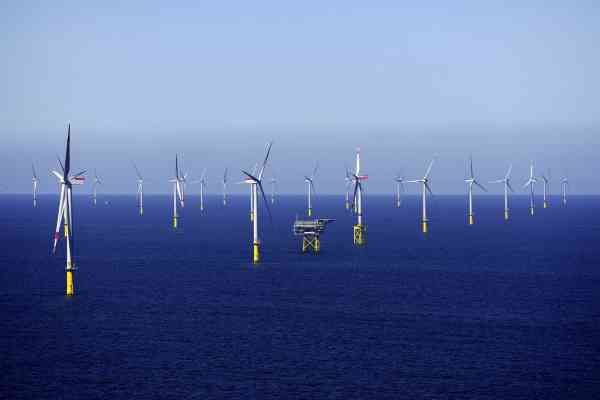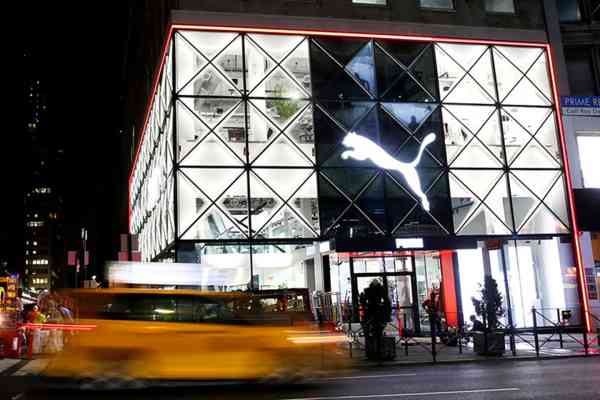December 29th, 2020 | 09:00 CET
RYU Apparel, Adidas, Under Armour - Styling high on the agenda!
The third wave of closures in Austria and now complete lockdown! Until January 18, not much is running in the Alpine country - however, the ski resorts are still open. Sports training is not a problem even in pandemic conditions - likely responsible for this is the strong lobby of ski tourism, which extends from hoteliers, restaurant owners, and mountain railway operators to the sports industry. The government followed the request and successfully resisted European uniformity. Reason: The Austrian gross domestic product is dependent on tourism to 37%, and here the winter pays two-thirds of the fee again. Turning off the tap at this point would immediately raise the question of who has to bear the economic damage. In any case, the EU will not pay - this has already been announced, so that skiing pleasure remains possible in Austria. We look at the sports and styling industry - is a new outdoor boom starting?
time to read: 3 minutes
|
Author:
André Will-Laudien
ISIN:
CA74979J4072 , DE000A1EWWW0 , US9043111072
Table of contents:
Author
André Will-Laudien
Born in Munich, he first studied economics and graduated in business administration at the Ludwig-Maximilians-University in 1995. As he was involved with the stock market at a very early stage, he now has more than 30 years of experience in the capital markets.
Tag cloud
Shares cloud
RYU Apparel - It goes ahead with Respect Your Universe
It's crafty how RYU Apparel has built up a complete fan base in a short time. The cooperation with Zoom Media and Francois de Gaspe Beaubien creates the target group "Generation Active". This approach torpedoes many of the customer strata of Nike, Reebok, Asics or Under Armour, which for their part are vying for the front ranks in the "Modern Street Life" segment. Nike certainly has the most significant budgets here - but given a turnover of USD 40 billion, it also has the related resources. Therefore, RYU will concentrate very intensely on its motto in marketing because everyone wants to belong to the "Active Generation".
Today's young consumers are no longer so strongly oriented to advertisements, but rather to testimonials and acting icons. Product placement in a new, hip Netflix series such as "The Count" or a cooperation with a YouTube star, therefore, brings many more 14 to 29-year-olds to the counter than was thought a few years ago. In other words, people want and wear what the idol in their favourite series is wearing. Sporting goods manufacturers nowadays shoot elaborate outdoor documentaries and cleverly post their merchandise before the snow-border jumps out of the plane. RYU masters this marketing very well acts creatively and conspicuously. It expects enormous surges in demand from the above-mentioned consumer generations in 2021, which today quite often have monthly budgets of over USD 500.
On December 22, RYU Apparel announced another CAD 1 million private placement, so the coffers are well-filled for the new year to raise awareness with new social media and online campaigns. The Company's market value is now at CAD 24 million - here we should expect a loose doubling in 2021, as the online boom will not go away!
Adidas - The number 2 turns green
Sporting goods manufacturer Adidas has announced that more than 60% of all products in its range will contain sustainable materials in 2021. New ranges will now be made with recycled polyester or be made from sustainably grown cotton. Products that incorporate recycled materials will be identified by the "Primeblue" and "Primegreen" labels introduced in 2020.
"We have continued to invest in sustainability during the Corona pandemic and will significantly expand our range of sustainable products in 2021," said CEO Kasper Rorsted, according to the latest statement. "To this end, we have first created the structures together with our suppliers to enable the processing of recycled materials on a large scale." In cotton, Adidas also announced a research collaboration with Finnish start-up "Infinited Fiber" and other unnamed partners to develop a process to produce a cotton-like material from old clothes. So now things are getting tricky in terms of manufacturing - that appeals to modern tastes.
The DAX share is trending with green coats. One gradually feels that every management meeting at the end of the year generates such an announcement. It's also understandable that brand owners want to reduce their carbon footprint to remain attractive to ESG investors. Adidas was thus recently able to place EUR 500 million with a sustainability bond. The stock is currently only 4% away from its all-time high. The valuation under the price-sales ratio is only half as high as Nike (2.4 vs 4.6). But of course, this does not mean a doubling expectation, because US valuations have never reached DAX stocks in this country.
Under Armour - From the basement to the light
Under Armour was founded on September 25, 1996, by Kevin Plank, a then 24-year-old former special teams captain for the University of Maryland football team. Plank initially started the business out of his grandmother's basement in Washington, DC. He spent his time travelling down the East Coast with nothing but clothes in the trunk of his car. His first team sale took place in late 1996 and raised USD 17,000. From his grandmother's basement, Plank moved to Baltimore. After a few moves around town, he moved to his current headquarters in Tide Point. Another story that's a pleasure to hear.
As a football player, Kevin was annoyed by his clothes' inability to wick away sweat, so he designed a T-shirt made of moisture-wicking synthetic material. Plank quickly perfected the design, creating new T-shirts made of microfibers that wicked away moisture and kept athletes cool and dry. He then did his first product testing back in the NFL. Viewers became aware of the brand when a photo on the front page of USA Today showed Oakland Raiders quarterback Jeff George wearing an Under Armour mock turtleneck. Now that is what a successful brand launch looks like.
Conflict of interest
Pursuant to §85 of the German Securities Trading Act (WpHG), we point out that Apaton Finance GmbH as well as partners, authors or employees of Apaton Finance GmbH (hereinafter referred to as "Relevant Persons") may in the future hold shares or other financial instruments of the mentioned companies or will bet on rising or falling on rising or falling prices and therefore a conflict of interest may arise in the future. conflict of interest may arise in the future. The Relevant Persons reserve the shares or other financial instruments of the company at any time (hereinafter referred to as the company at any time (hereinafter referred to as a "Transaction"). "Transaction"). Transactions may under certain circumstances influence the respective price of the shares or other financial instruments of the of the Company.
Furthermore, Apaton Finance GmbH reserves the right to enter into future relationships with the company or with third parties in relation to reports on the company. with regard to reports on the company, which are published within the scope of the Apaton Finance GmbH as well as in the social media, on partner sites or in e-mails, on partner sites or in e-mails. The above references to existing conflicts of interest apply apply to all types and forms of publication used by Apaton Finance GmbH uses for publications on companies.
Risk notice
Apaton Finance GmbH offers editors, agencies and companies the opportunity to publish commentaries, interviews, summaries, news and etc. on news.financial. These contents serve information for readers and does not constitute a call to action or recommendations, neither explicitly nor implicitly. implicitly, they are to be understood as an assurance of possible price be understood. The contents do not replace individual professional investment advice and do not constitute an offer to sell the share(s) offer to sell the share(s) or other financial instrument(s) in question, nor is it an nor an invitation to buy or sell such.
The content is expressly not a financial analysis, but rather financial analysis, but rather journalistic or advertising texts. Readers or users who make investment decisions or carry out transactions on the basis decisions or transactions on the basis of the information provided here act completely at their own risk. There is no contractual relationship between between Apaton Finance GmbH and its readers or the users of its offers. users of its offers, as our information only refers to the company and not to the company, but not to the investment decision of the reader or user. or user.
The acquisition of financial instruments entails high risks that can lead to the total loss of the capital invested. The information published by Apaton Finance GmbH and its authors are based on careful research on careful research, nevertheless no liability for financial losses financial losses or a content guarantee for topicality, correctness, adequacy and completeness of the contents offered here. contents offered here. Please also note our Terms of use.




